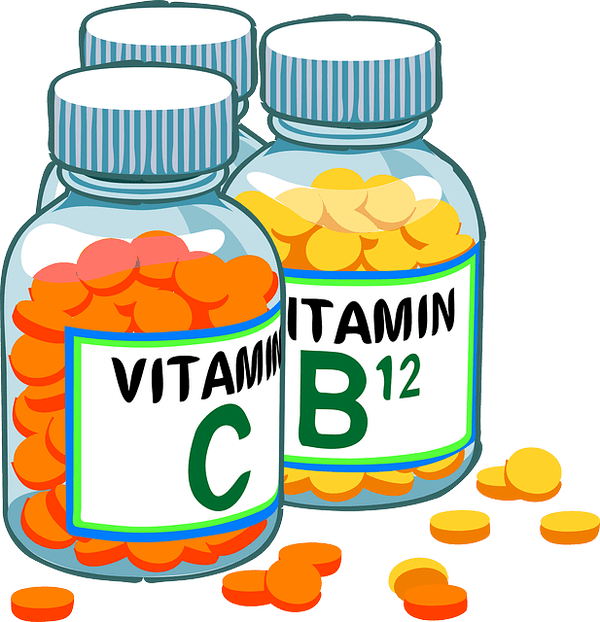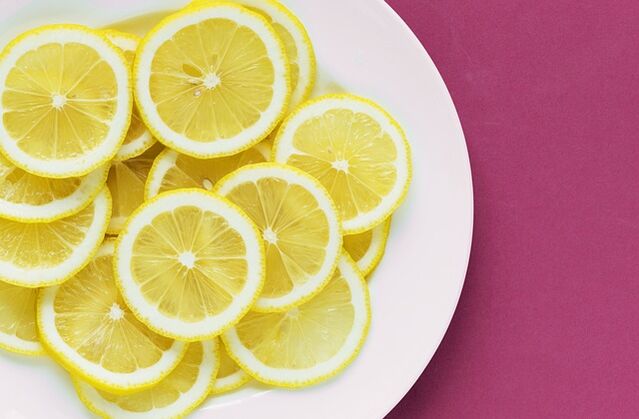Decreased libido is often associated with psychological problems: depression, fatigue, stress. This sometimes refers not only to the problems of a couple, but also to serious illnesses. Today we are going to talk about vitamins of potency that improve sex life.

Factors influencing potency: desire in the head
Fatigue is the most common cause of low male libido. Professional changes, extended schedules often cut off men’s sexual desires. In these cases, we observe that sexual desire returns during rest periods: on weekends, on holidays.
Male libido is often also affected by stress, regardless of its origin. The economic situation, family problems, health problems can cause a temporary decrease in sexual desire.
Sometimes libido depends on family relationships. The constant presence of the child, the regular refusal of the partner can heat up the person, question his masculinity.
Solving libido problems is often a dialogue: within a couple, in a family, with a doctor, or with a psychologist. Identifying the source of anxiety will help solve libido problems.
Medical causes of decreased male libido
Sometimes there is no psychological explanation. Keep in mind that a decrease in male libido can also be caused by:
- drugs: antidepressants, anticancer drugs, beta-blockers, hormones, etc. ;
- diseases: diabetes mellitus, obesity, thyroid damage, etc. ;
- toxic substances: alcohol, tobacco, drugs.
Therefore, a sudden decrease in sexual appetite may reveal an undiagnosed disease. In any case, if you have a low libido disorder, if it affects your daily life badly, see your doctor.
Note. Some men are taking medications that have the side effect of decreased libido. They usually want to stop treatment to restore a normal sex life. You don't have to do this! It is better to first remedy the problem for which the medication was prescribed and only then resolve the libido-related problems.

Vitamins
Vitamin A
Vitamin A is involved in maintaining people’s immune systems and sexual functions, especially the male vitamin against impotence. It is important for the formation of sperm inside the testes. It is available in two forms: animal retinol and provitamin A from fruits and vegetables or beta-carotene.
- Recommended adult male dose: 900 mcg / day.
- It is found in poultry liver (10000 mcg / 100 g), oily fish and whole dairy products, especially butter. Beta-carotene, a plant version of vitamin A, is found in orange fruits and vegetables: sweet potatoes, pumpkins and carrots.
Group B vitamins
Vitamins B are a large group of vitamins that are essential for many vital functions of the human body.
B3, or niacin in particular, is used by the body to synthesize sex hormones. Thus, B3 deficiency can lead to a decrease in testosterone, a craving hormone. Found in yeast, wild rice, bran and almonds. The synthesis also requires tryptophan, which is found in animal products, meat, fish and dairy products.
B5 is involved in the production of sex hormones and neurotransmitters. Like B6, which is used in the production of red blood cells, serotonin and dopamine, hormones that regulate mood and libido. B5 and B6 are found in yeast, veal liver, sunflower seeds, mushrooms, soybeans, oatmeal, buckwheat, lentils, etc.
B9 is known as folic acid. This vitamin, as shown in a 2014 study, plays an essential role in nitric oxide metabolism.

The functional state of the penis (flaccid or erection) is regulated by smooth muscle tone. Nitric oxide is responsible for relaxing smooth muscles and blood vessels, allowing blood to circulate freely in the muscles. It also reduces the oxidative stress created by free radicals, which improves erectile dysfunction. You can get this vitamin through supplements and certain foods like spinach, lentils, lettuce, avocado and broccoli.
B12 is essential for the functioning of the nervous system involved in sexual arousal. In addition, B12 deficiency causes anemia and increased fatigue, while B12 supplementation stimulates endurance and restores energy. B12 is found in mussels, fish, liver, eggs, meat and dairy products.
vitamin C
This water-soluble vitamin, also known as ascorbic acid, is essential for improving the metabolism of the human body.
Among other things, it stimulates the immune system and the absorption of iron from food, thereby promoting the production of red blood cells, which helps increase the body’s energy and makes ascorbic acid a good sexual stimulant.
It is also a powerful antioxidant. Smokers consume most of the ascorbic acid consumed with food, so they need supplementation.
- Recommended dose for adult men: 500 mg / day.
- Particularly large quantities are found in kiwi (71 mg), citrus fruits (lemon, orange, grapefruit, tangerine, etc. ), pepper, strawberry, broccoli, melon.

Vitamin D
Vitamin D is essential in the fight against winter depression and helps prevent many types of cancer. It also helps with libido problems. Several studies show that the body's testosterone levels correlate with vitamin D levels. That is why it is called the vitamin of desire. It also promotes sperm mobility. Therefore, vitamin D is the king of vitamins among men.
Vitamin D is synthesized by the body during the summer months, provided a person spends enough time in the sun. If you can’t afford it, you need to take special accessories.
- Recommended dose for adult men: 10, 000 IU / 15 kg.
- It is found mainly in fish oil and egg yolk.
Vitamin E
This fat-soluble (oil-soluble) substance was discovered in 1922 in wheat germ. It is an essential antioxidant that protects the lipids in the human body, especially the cell membrane, from oxidation due to free radical attack. Essential for human reproductive function. Vitamin E also maintains the health of the cardiovascular system, which is essential for the erection of the penis.
It is in the form of various isomers (alpha-tocopherol, gamma-tocopherol and tocotrienols). Tocotrienols have the best antioxidant and anti-cancer effects.
- Recommended adult male dose: 15 mg / day.
- In large doses are found in the following foods: wheat germ (21 mg / 1 tbsp), almonds, sunflower seeds, pine nuts, Brazil nuts, dried tomatoes, sardines, avocados.

Vitamin K
Vitamin K, which is a clotting vitamin, can stimulate testosterone production in a dose-dependent manner. In K2 form, this would be most effective. Be careful not to take vitamin K if you are taking anticoagulants.
- Recommended adult male dose: 120 mcg / day.
- Found in plants and fermented foods. Supplements are available in the form of menaquinone or MK7, the most potent bioavailable form.
Calcium
According to a December 2010 study, calcium as well as folic acid, vitamins E and C may be therapeutic for the treatment of erectile dysfunction (ED). Scientists have found that all of these nutrients have a positive effect on a number of vascular factors and therefore improve erectile dysfunction. Research also suggests that this combination of vitamins and minerals may help traditional medicines used for ED work more effectively.
Zinc
It is another mineral prescribed for a number of health problems, including increased sperm production and male fertility. Doctors also offer zinc-rich foods such as beef, oysters, dark chocolate, chicken, beans, and more.

Skin
Boron is one of the most commonly used minerals in medicines and dietary supplements. In addition to improving bone and muscle health, it also contributes to higher testosterone levels and better mental health.
Magnesium
The body is also known as a miracle-working mineral because it is involved in more than 300 processes in the body, from sex hormones to neurotransmitters.
Selenium
For men, selenium is important for efficiency as it promotes sperm production and supports mobility. About 50% of the selenium in the human body is found in the testes and nuclei. Doctors say that every time ejaculation occurs, selenium is lost. Therefore, you should eat foods rich in selenium and take supplements.
At a daily rate
| Material | Daily portion | Maximum dose | The best food sources |
| Vitamin A | 3000 NE | 3000-10, 000 NE | Orange, yellow, red and green fruits and vegetables |
| Vitamin D | 9-50 years: 200 IU 51-70 years old: 400 IU >70 years: 600 IU osteopenia or osteoporosis: 1000 IU |
1000 NE | Fortified milk, oily fish |
| Vitamin E | 22 NE | 200 NE | Wheat germ, vegetable oils, nuts |
| Vitamin K | 120 mcg | Green leafy vegetables | |
| vitamin C | 90 mg Smokers: + 35 mg |
500-2000 mg | Fruits and vegetables, especially peppers and citrus fruits |
| Thiamine (B.one) | 1, 2 mg | 30-100 mg | Whole grains, brown rice, fortified foods, legumes, pork, oysters |
| Riboflavin (B.2) | 1. 3 mg | 30-100 mg | Dairy products, green leafy vegetables, oysters |
| Niacin (nicotinic acid) | 16 mg | 500-1000 mg | Poultry, red meat, fish, legumes, peanut butter, nuts |
| Vitamin B6 | 1, 3-1, 7 mg | 100 mg | Meat, fish, poultry, eggs, potatoes, fortified cereals, peanuts, soy |
| Folic acid | 0. 4 mg | 0. 4-1. 0 mg | Green leafy vegetables, legumes, oranges, broccoli, cauliflower |
| Vitamin B12(cobalamin) | 2, 4 mcg | 1000 mcg weekly or monthly if incomplete | Fish, seafood, meat, soy milk and fortified rice, fermented soy products |
| Calcium | 1000-1200 mg | 1000-1500 mg | Dairy products, soy milk and fortified rice, fish bones |
| Magnesium | 400 mg | 350 mg | Whole grains, nuts, vegetables, legumes |
| Iron | 8 mg | It is only used to treat anemia caused by iron deficiency | Meat, legumes, tofu, green leafy vegetables, breakfast cereals |
| Zinc | 11 mg | 40 mg | Oysters, meat, poultry, fish |
| Selenium | 55 mcg | 100-400 mcg | Whole-grain cereals, poultry, meat, dairy products grown in selenium-rich soil |

















































































